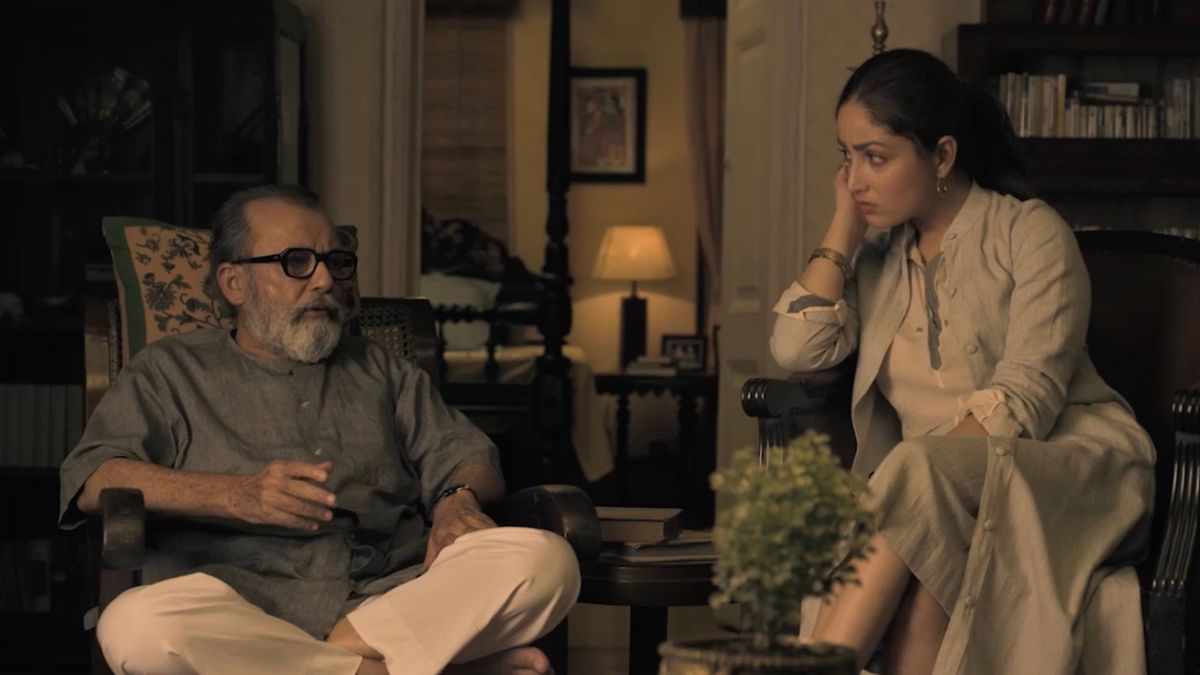Lost
7.png)
CAT INDEX
CAT INDEX OVERVIEW
SCREENPLAY
MAKING
ACTING
Lost is fundamentally a political film that analyzes the system and portrays the unpleasant reality from a journalist's point of view. There are irregular stages in this thrill ride by Aniruddha Roy Chowdhury that feels upsetting and retaining. However, the film's deliberate attempts to delve into the personal life of the main character give it a somewhat inconsistent feel. Lost is a passable political thriller with a relevant subject and a sincere Yami Gautam that could not fully utilize its premise.
Our main character is Kolkata-based journalist Vidhi Sahani. She comes across a woman in tears at a police station one day. The woman's sibling has disappeared, and Vidhi figures out that there was a clear disinterest among the experts in tracking down that kid. Vidhi decided to find out the truth about the situation after the missing man was described as sympathizing with Maoist groups. What she finds on her journey is what you see in Lost.

The drama is pretty flat at the beginning of the movie. Vidhi, brave and ferocious, feels a little loud. In addition, the domestic abuse aspect of the missing man's sister's life appears somewhat forced. Then, at that point, the film slips into the individual existence of Vidhi and, thus, the word-related risks of a wrongdoing journalist. The middle of the movie, when Vidhi is unsure of how to proceed with her investigation, is very intriguing. Vidhi is put in a difficult position when she confronts Ankita, the girlfriend of the missing guy Ishan Bharti. It was minutes like these that caused us to feel the harshness of the real world.
The setting of Kolkata is used very well by Aniruddha Roy Chowdhury to set the mood for the thriller film. The visual of a lady wandering around the city of Kolkata and getting followed by men someplace helped me remember another thrill ride, Sujoy Ghosh's Kahaani. The visuals by Avik Mukhopadhyay also attempt to present the story from a third-person perspective. This film's impact is diminished by the inconsistent writing that shifts focus to other tracks like Vidhi's romantic equation or Ankita's dramatic growth. I loved how the ending of the movie changed how the word "Lost" was interpreted in a short amount of time.

On paper, Lost seems like a compelling and timely film. However, the movie wasn't completely capturing your attention. The realness in how the scenes are delivered and the nature of the exhibitions make it a non-exhausting film. It was one of those movies that might have been all the rage yet couldn't investigate its genuine potential.
Seasoned cinephiles would have seen a lot of films about investigative journalism and might mention Lost along with classics like Frost/Nixon and The Post. It arrives there, however not exactly. I say this because the protagonist's decision to let some things slide went against what the film had built her up to be. The conclusion may appear to be a whimper. However, if one takes into account the actual profession and world, it makes perfect sense. This explanation of everything lost would have been the story of two films—the first 105 minutes and the last 900 seconds if they had chosen something flashy.


